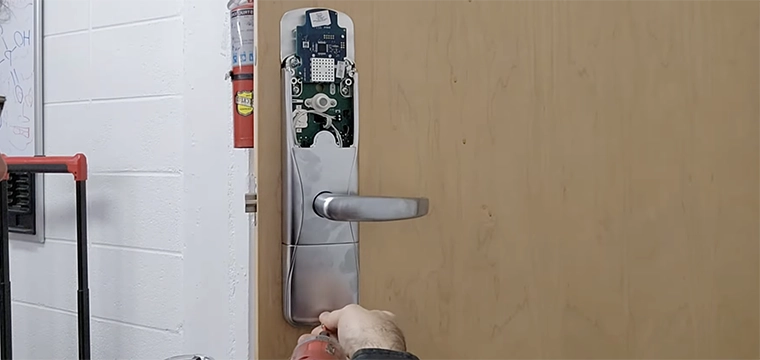At the University of Michigan (UM), intramural athletics require major league administration. During the 2001-02 school year, the Intramural Sports Program served 21,676 participants and 2,077 teams. There were 100,000 games and events in 44 separate activities. Ensuring that only currently enrolled, fee paying students participate takes an enormous amount of coordination. This summer, UM began using a personal digital assistant (PDA) equipped with a magnetic stripe card reader to verify player eligibility on the athletic fields and generate team rosters.
How does it work?
At the field, officials enter the game number and “home” or “away” team info, and then swipe each player’s student ID card through the hand held reader. The application extracts the player’s student ID number and name from the magnetic stripe and writes it to the on-board database. It then displays whether or not the player is eligible to participate in the activity by checking his or her enrollment status from the on-board master database. If applicable, it requests a jersey number be entered. The player’s info is then added to the team roster.
Following the event, the data is downloaded from the hand held unit to a PC-based auditing program. The sport administrator conducts a real-time audit to ensure that all participants were eligible at the time of the event. This is necessary because the master database held on the PDA, while perfectly timely for this field application, is current only as of the last time it was uploaded. After the rosters are audited and any improper entries are removed, the information is transferred into a scheduling program to complete the process. Collected data is used in reports, score-cards, and the intramural web site.
The solution uses the CardTool® magnetic stripe reader from TokenWorks® and a Visor PDA from Handspring. The application was written in CASL (a PalmOS rapid application development tool) by Alex Kulscar, Technology Coordinator for the Department of Recreational Sports at UM. Says Mr. Kulscar, “We have been looking to implement some sort of hand-held scanning solution for years. It has not been until the past year that a cost-effective solution has been available on the market.”
According to Charles Cagliostro, President of TokenWorks, “campus card professionals are typically shocked when they learn how inexpensive our solutions can be. A PDA with our mag stripe reader and an attendance application costs under $300 and a complete verification application costs under $500.”
Adds Mr. Kulscar, “the TokenWorks CardTool is one of three products that we have found on the market that would serve our needs. Without question, it has performed the best of the solutions that we have tested.”
When asked if he sees other uses for the technology on the University of Michigan campus in the future, Mr. Kulscar notes that the Athletic Department has taken a rather keen interest in the project. At intercollegiate athletic events, students must present a valid ID with their student ticket to be granted admission. The TokenWorks technology could help expedite and automate this process. When it comes to athletics–be it intramural or intercollegiate–the University of Michigan is as big as they come. But it seems that this little system is up to the task.




